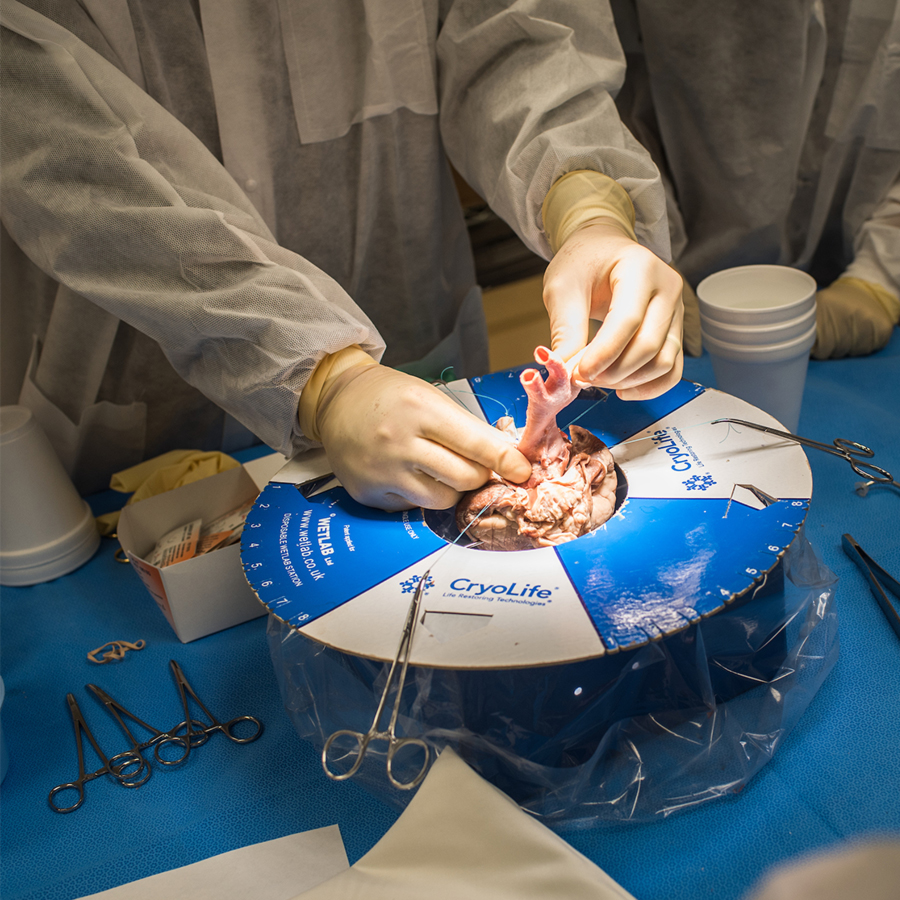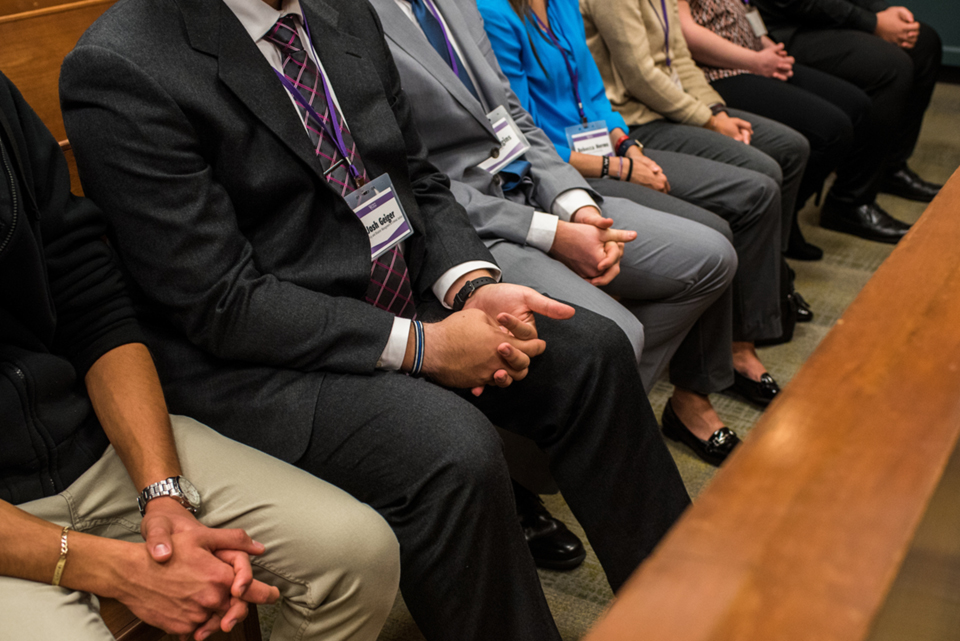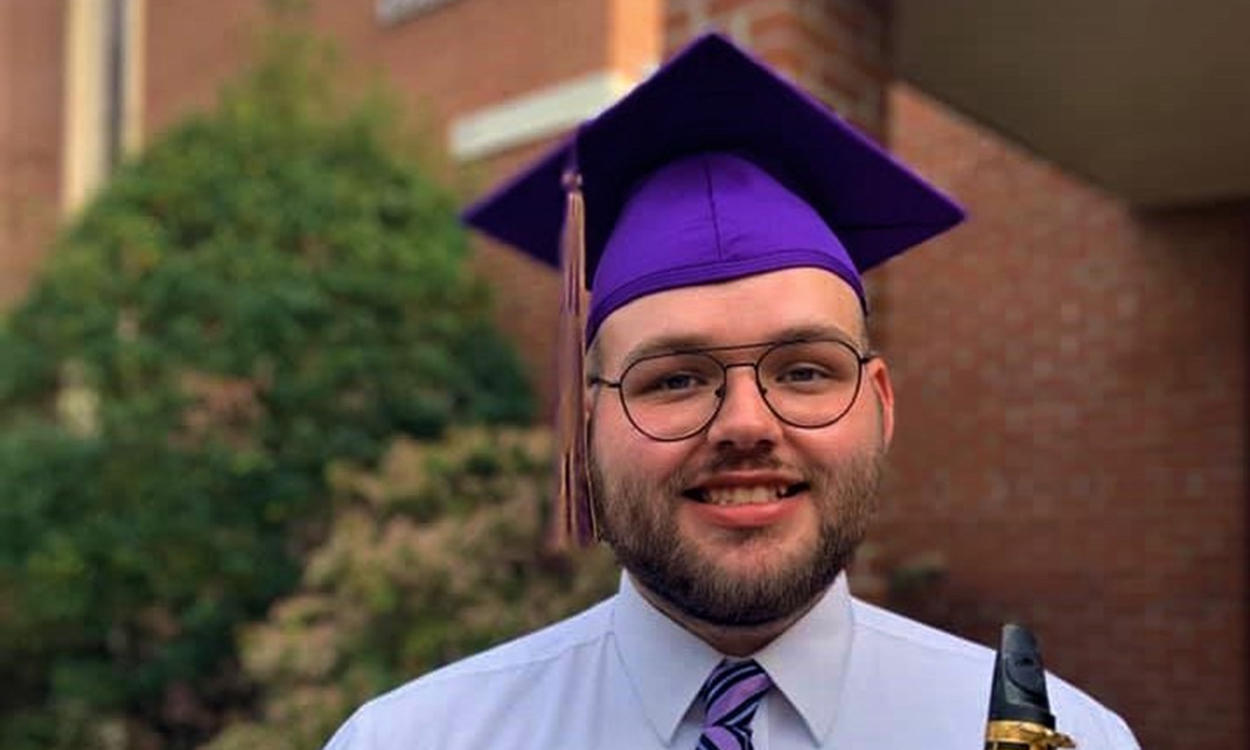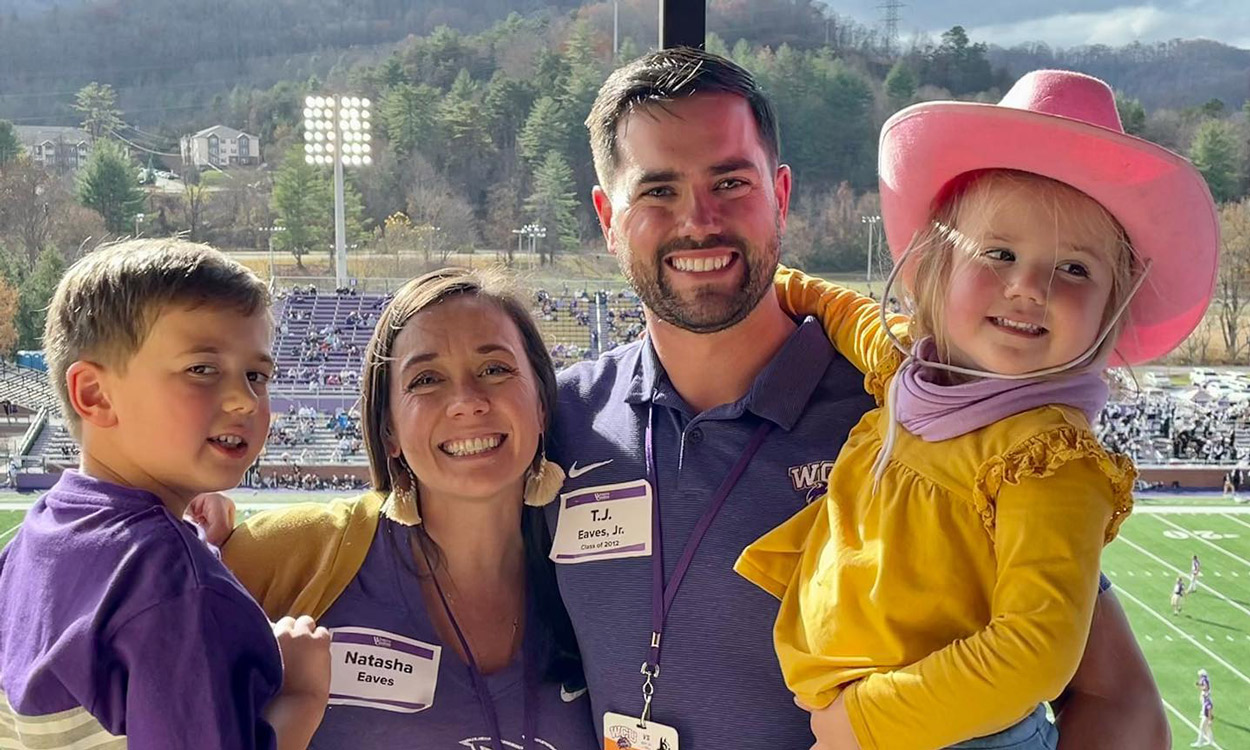









Beyond the Books
Students Shadow Alumni for Real-World Experience
It was a long day with an early start, but well worth the effort for 18 Western Carolina
University students to see first-hand what their future careers could be, all thanks
to some high-ranking WCU alumni in Cobb County, Georgia, and WCU’s Shadowing Day program.
Hosted by WCU’s Office of Alumni Engagement and Center for Career and Professional Development, Shadowing Day matches WCU’s “best and brightest students with some of the university’s
most successful alumni,” said Marty Ramsey, director of alumni engagement. “This special
initiative has created an opportunity for us to connect with our alumni in a new and
unique way, while at the same time offering students real work experience beyond the
classroom. Our alumni truly enjoy interacting with our students.”

This year’s group of students plus a handful of WCU administrators and alumni representatives traveled to Georgia on Nov. 6 to spend the day with recently retired Cobb County Sheriff Chief Deputy Milton Beck, a 1988 WCU alumnus, and John Davis, senior vice president of global sales and marketing at CryoLife, and a 1987 graduate of WCU. CryoLife is a distributor of cryogenically preserved human tissues for cardiac and vascular transplant applications and a developer of medical devices, such as human heart valves. Coincidentally, Beck and Davis were fraternity brothers while at WCU.


From an inside look at the Cobb County jail to a hands-on pig heart valve replacement
demonstration at CryoLife, the students — whose majors run the gamut — met with experts
in law enforcement, medical device sales, marketing, business, information technology
and other fields to pick their brains on how the textbook model of the working world
compares to the real thing. About half of the students spent the day shadowing with
professionals at CryoLife, while the other half shadowed at the Cobb County Sheriff’s
Office.
WCU senior Mariah Farris spent the day at CryoLife, where she helped suture a pig
valve to a pig heart, an “exhilarating” experience, she said. “I’ve never done anything
like that, and I didn’t expect to do that on this trip. But it was very fun,” she
said. Farris is majoring in business management with a minor in economics and is interested
in pharmaceutical and medical device sales after she graduates.


Depending on their career interests, students were placed with CryoLife professionals
from the company’s various departments to learn about corporate life — whether marketing,
chemistry, graphic design or information technology. “The people we talked to told
us about marketing strategies and what it’s like to be a marketer for a medical device
company,” Farris said. “They also told us how they got their starts. We’re all just
starting out and trying to figure out our careers. They gave us life advice about
it and how to approach it. I was told to keep my enthusiasm up and stay positive and
that the money will come with time. It gave me confidence that I’ll find my perfect
job soon.”
Davis said this was the company’s first time to partner with WCU for the Shadowing
Day program and he liked that it gave students a chance to see what a potential career
would look like day in and day out. “And to either affirm what they already believe
about what they want to do for the rest of their life or perhaps to even jolt them
into saying maybe this isn’t what I want to do for the rest of my life,” he said.
“I think there’s a lot of value in that because most people find that out later and
it’s a little more difficult to change course.”



WCU freshman Terran Brown of Clyde insisted he is sure of his career plans upon graduation
— to be a police officer back home in Haywood County — despite hearing the dark-humored
yet harrowing tales of police work from Beck. “It’s a difficult job and I know what
I’ll be getting into,” Brown said. “It’s a challenge and I love a challenge.”
His favorite advice from Beck was “If you mess up, ’fess up. We can fix a knucklehead,
but we can’t fix a liar.” Beck also told the students to not let anyone outwork them
and to live their lives and work their lives “wired for what is right every day. Not
four days a week, not five days a week. It’s seven days a week.”
Beck, who graduated from WCU with a degree in sport management, was a standout Catamount running back for Coach Bob Waters’ national championship
runner-up team. A native of Cobb County, Beck returned home after graduation only
to be told by his father to find a job or join the military. He retired in March 2019
after 28 years in law enforcement. “Don’t let your degree define you,” he said.

“Don’t let your degree define you...”
Most of the students who shadowed with law enforcement expressed an interest in detective and homicide work, careers that Beck said were made popular by current television programs that don’t accurately show the ladder police officers have to climb to reach those positions. “This is a job where you’re not going to come in as a detective, you’re not going to come in in a coat and tie. You’re going to come in at ground level doing the basics,” said Beck. “How are you going to investigate a case if you don’t know how to take out a warrant? How can you investigate a case if you don’t know how to arrest somebody or establish a probable cause? How can you go and be a narcotics agent when you don’t even know the difference between a misdemeanor and a felony? You’ve got to learn the basics. Sometimes it takes some people longer than others.

Davis was an English major at WCU who stumbled into the medical field because a college aptitude test indicated
he had the ability to master medical vocabulary. It was true, he said. “I really didn’t
know the words, but I knew the root words. So, that ended up propelling me into something,”
said Davis, who started his medical career in a clinical lab, before eventually making
his way to CryoLife. “Once I got my feet into it, I loved it because it was something
where I felt like I was making a difference.”
Courtney Gauthier, WCU’s associate director of career integrated learning, said the shadowing program provides the experiential learning that can make a real
difference for students. “For so many students, they choose their majors and they
choose their careers based on what they are doing in the classroom,” Gauthier said.
“So, to get out, to see it, to experience the culture of an organization, not just
who they’re meeting with, but to see them interacting, what that’s like — that’s
invaluable.”

